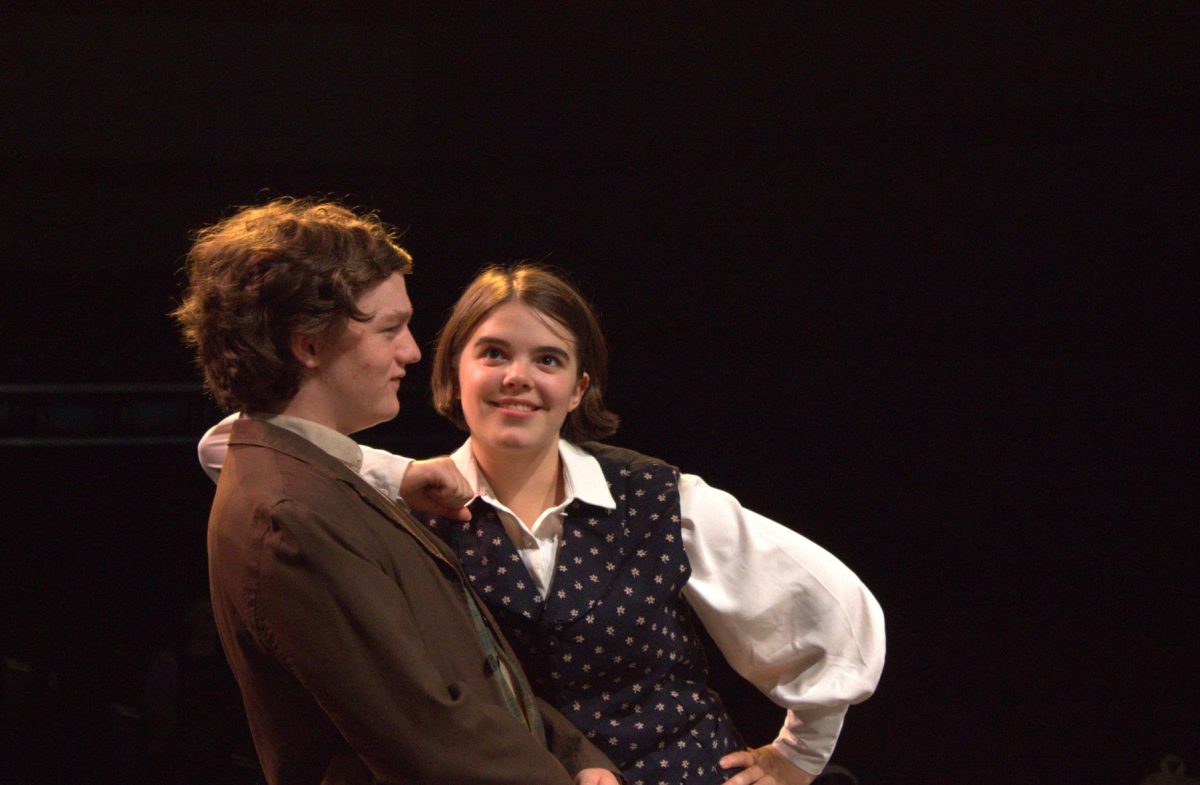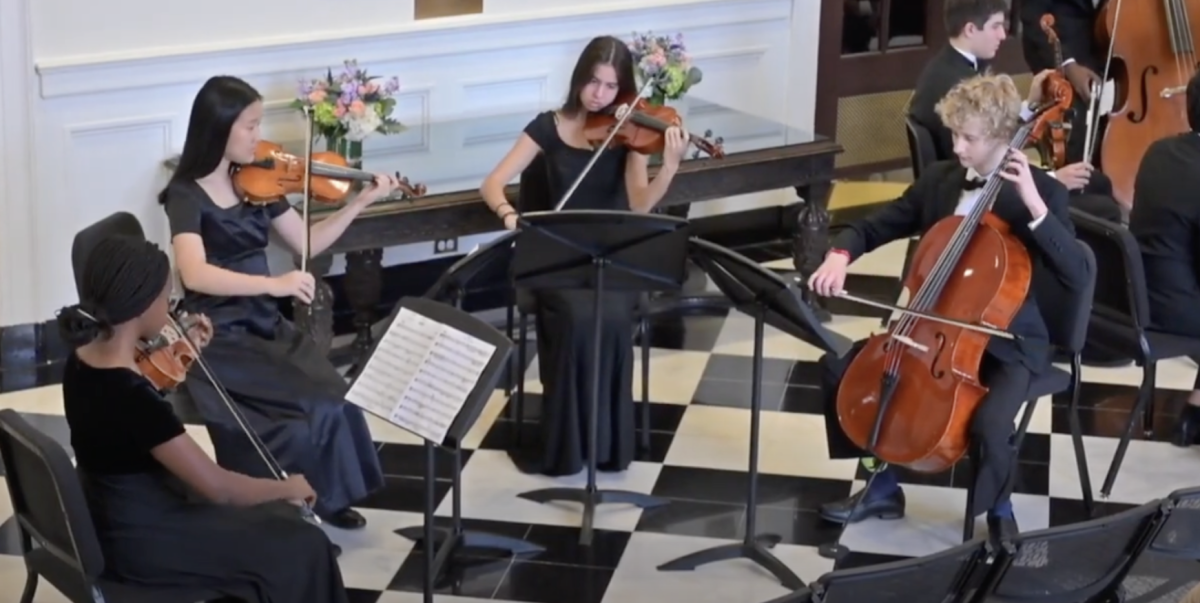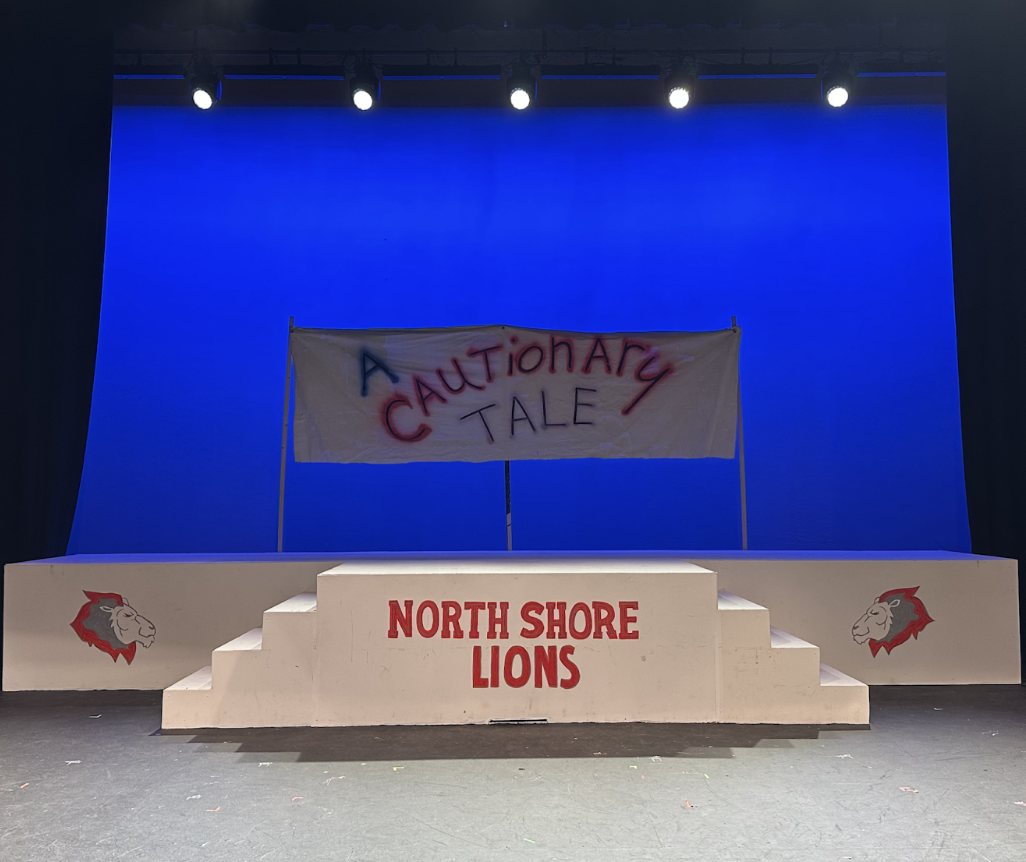A Westminster teacher, parent, and student found themselves thrust in the middle of the Salem witch trials. The date, however, was not 1692; it was just last weekend.
English teacher Eddie DuPriest, junior Liz Morgan, and Susan Callaway (mother of Patton Callaway ‘11 and junior Isabel Callaway) all performed in Trinity Presbyterian Church’s production of Arthur Miller’s 1952 play, The Crucible.
“This is the first time that a Westminster faculty member, mother and student are all in the same show,” said DuPriest. “So that’s pretty good [public relations] for the school.”
“The highest percentage of cast is Trinity Church members,” said DuPriest, “and everybody else is just from around Atlanta.”
For instance, Atlanta actor John Paul Marston, who played Reverend Harris, has featured in several commercials, TV drama Necessary Roughness, and was an extra in an episode of Vampire Diaries.
The content and premise of the play are not for the faint-of-heart.
“This play was written in the late 40s, early 50s,” said DuPriest, “and it was Arthur Miller’s reaction and response to the McCarthy era in this country.”
After World War II, America grew increasingly suspicious of communism. Joseph McCarthy, a young senator at the time, went on a rampage against many creative actors, producers, and writers, including Arthur Miller, accusing them of being communists. Those accused had to go to Washington and sit in front of the senate and be interrogated.
“The more you defended yourself the more awkward it became,” said DuPriest, “and the more convinced the senators were that you were communist. That was [Miller’s] motivation for writing a play about innocent people being condemned as demonic.”
Miller set the play during Salem Witch trials of the late 1600s, and used that setting to discuss current events. The characters in the play who are accused of being witches are clear representations of the Americans who were accused of being communists.
“If I [Reverend John Hale] accuse you of being a witch, you have two choices,” said DuPriest. “You can either admit it and sign a document that says you’re a witch, and we’ll put that on the bulletin board on the church door. Your friends will see that, your children will read it, and for the rest of your life you’ll be identified as a witch. The advantage is that is you’ll be alive. If you deny it, we’ll hang you. And that’s the Salem Witch trials.”
The Crucible’s interpretation of the witch trials is centered around Abigail Williams, an obsessive teenage girl, who decides the the fates of the accused witches. Abigail is motivated by her love for John Proctor, with whom she had a brief affair even though he was married to Elizabeth Proctor. Abigail thus accuses Mrs. Proctor, along with over one hundred other innocent women, of being a witch in an attempt to shove her out of the picture. Abigail falsely believes that this will ultimately lead her to become John Proctor’s sole love.
“It’s such an over-the-top idea to think today that this teenage girl was able to fool and manipulate everyone,” said Morgan, who played one of the teenage girls under Abigail’s control.
At one point during the play, Abigail and the girls have to “prove” to the court that they aren’t lying and that the so-called witches are indeed sending demonic spirits to haunt them. In an outlandish scene, the girls pretend to see demons in order to convince the court they aren’t liars.
“That scene is full of energy from the teenagers,” said Morgan. “They all know they’re lying, but they have to play along with Abby so they won’t get in trouble.”
The entire play buzzes with constant energy. Whether John and Elizabeth Proctor are fighting or the girls are screaming in court, motion in The Crucible never ceases.
“The biggest challenge is simply finding the energy required to make this guy real,” said DuPriest about his character, Reverend Hale. “I’m really cocky and confident when I come in, but my character learns truth about himself and changes, so by the end of the play I am no longer confident about anything. I’m angry about people being killed and hanged under the assumption that they’re disciples of the devil. It’s frightening, because I’m responsible for a lot of these people dying.”
However, finding the energy doesn’t seem too difficult for DuPriest.
“[My students] will tell me that when I do a play I’m a little crazier in class,” said DuPriest. “There is a carry over because there’s so much adrenaline.”
Another challenge for the cast was working so closely and intensely with complete strangers.
“We’re asked to become a community almost overnight and know one another and respond to one another. It’s really hard,” said DuPriest. “[But] it’s a lot easier now than it was a month ago when we started.”
Building close relationships and trust were not the only problems for the actors.
“My biggest challenge was memorizing all my lines and having to perform them with such passion,” said Callaway. “Because of the lighting, I could see everybody’s faces in the audience, which just made me more nervous. Once I went on stage, I forgot about the audience and just tried to solely engage with my character.”
The actors were excited to perform for the first time on Thursday, Feb. 23.
“All athletes know the hardest part of being an athlete is the practices,” said DuPriest. “The games are great though. Everybody loves the games.”
Audience members, which included Westminster students, responded well to the play.
“It’s an interesting experience seeing your math teacher and former English teacher in the performance,” said junior Sela Sarkisian, “because for once they aren’t ‘the teachers’ and I’m not ‘the student’ but we’re both the audience.”
Students and teachers alike piled into the church to watch their teachers and friends perform in an atmosphere that was different from school.
“[My students] see me in a totally different environment,” said DuPriest. “They get to see me really vulnerable. It’s like we become a family, and they’ll be concerned and they’ll want me to do well like I want them to do well. You go maybe because your English teacher’s in the play and you need brownie points, but if everything works out, sooner than later you forget that that’s your English teacher. That’s John Hale.”





